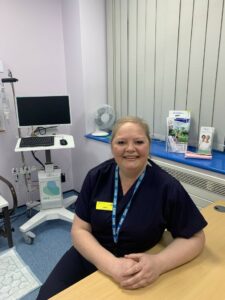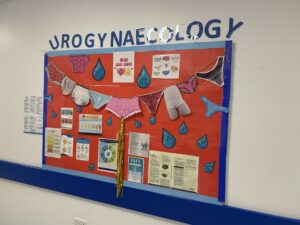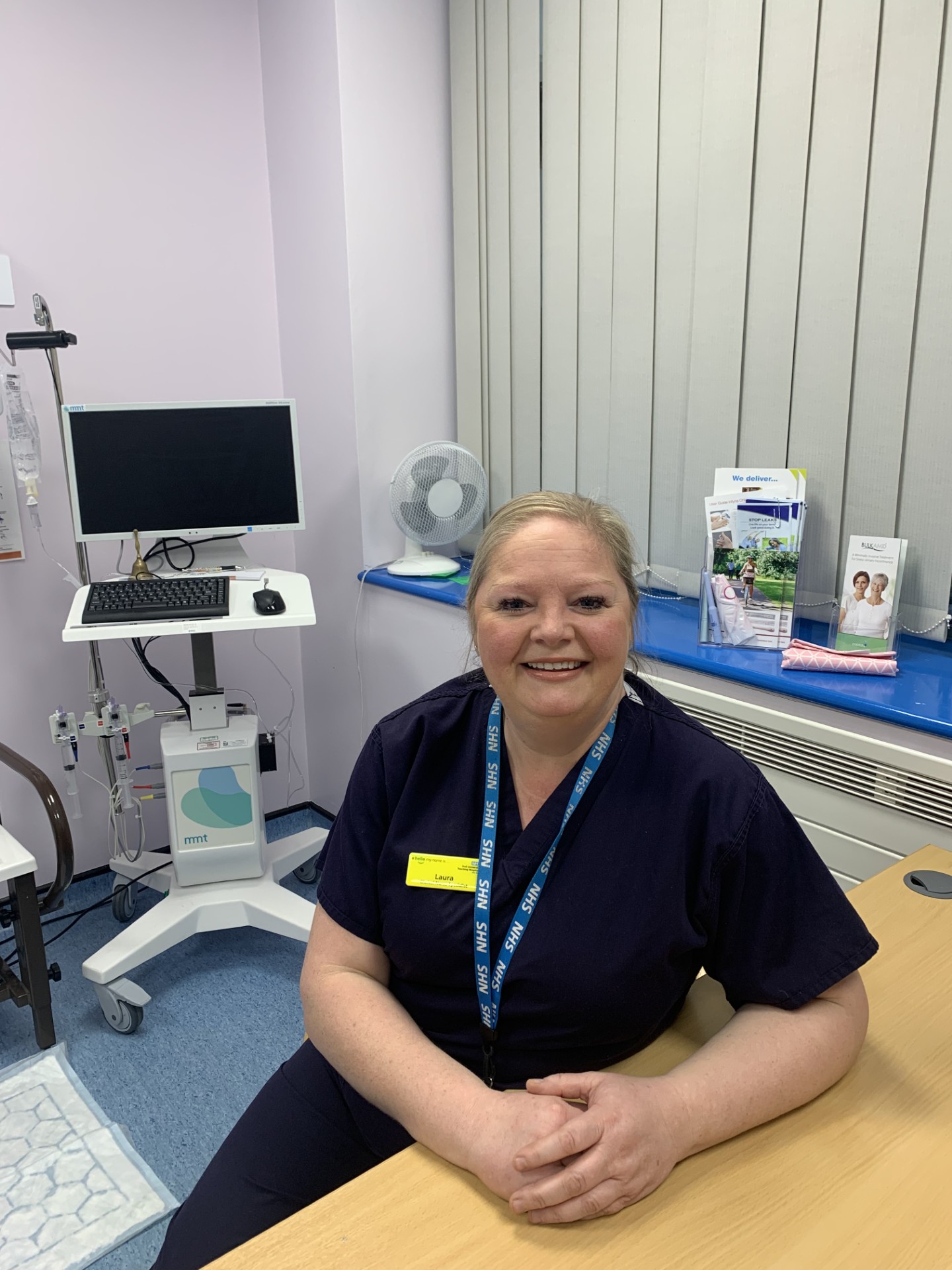Thousands of women in East Yorkshire and Northern Lincolnshire could be suffering in silence with incontinence or bladder weakness, a hospital nurse specialist says.
Laura Rimmer, a Clinical Nurse Specialist in Urogynaecology at Humber Health Partnership, says more than six in 10 women will experience some form of incontinence during their lives.
However, despite its prevalence, many will not seek help because of embarrassment.

Urogynaecological specialist nurse Laura Rimmer
Laura, who works for the NHS group running Hull Royal Infirmary, Castle Hill Hospital, Scunthorpe General Hospital, Goole Hospital and Diana, Princess of Wales Hospital in Grimsby, is encouraging women to seek medical support.
“Too many women feel too embarrassed or worried to ask for help but taking that first step can make all the difference to their quality of life,” says Laura.
“You don’t have to suffer in silence – there are many ways we can help which don’t involve surgical intervention and can be done by yourself in the comfort of your own home.”
Urinary incontinence and bladder problems can be caused by factors including childbirth, menopause, diabetes and neurological conditions including MS. It can also be linked to bowel problems such as constipation because of the proximity of organs in female bodies.
Symptoms include a sudden urge to urinate, needing to urinate more often than usual, waking up frequently at night to urinate and involuntary loss of urine, especially during physical activities such as laughing, sneezing or exercising.
One in four women over 40 will experience incontinence during their lifetime and it’s linking to ageing, affecting 43pc of women aged 50 to 64 and more than half of women aged 65 to 80.
Those affected say it leaves them feeling isolated or depressed and it can stop them enjoying activities like dancing, running or going to the gym.
Women from both banks of the River Humber are referred to the Urogynaecology Service, based at Hull Women and Children’s Hospital, by their GP, midwife, a multi-disciplinary team or following treatment for gynaecological or bowel conditions.
They are triaged by the consultants, with Laura seeing about 25 women a week – or around 1,000 a year – for her nurse-led service.
Treatment can include pelvic floor exercises and education, conservation management using specially designed devices to prevent leaking or intermittent self-catheterisation, where women can take charge of their own bladder control without having to come for hospital or GP appointments.
Laura says: “Some women find that stopping caffeine, fizzy drinks and drinking at least two litres of water a day can help reduce symptoms while others can be helped by taking anticholinergic medication, pessaries, conservation management, pelvic floor exercise techniques or self-catheterisation.
“Whatever your problem, just remember it’s nothing we haven’t seen before and there’s no need to be embarrassed. Instead, it can make all the difference to your quality of life and help you take charge of your own health once more.”

